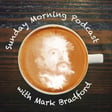
What I learned writing a screenplay
(and how it might help you tell your own story)
Telling a story in an unfamiliar medium with constraints you’re not accustomed to is a common theme in business. You may be the best story teller in your circle/medium/genre but if you need to tell your story outside of that it can be a challenge, a learning experience, overwhelming or all three.
Here’s my experience in writing the screenplay for The Sword and the Sunflower and how it might help you tell your story in an unfamiliar medium.
Book vs. screenplay
A book is a self-contained personal connection between you and the reader. It allows you to intimately tell a story, brain-to-brain. There’s nothing in the way other than rules of style, fonts, the reader’s imagination, your ability to tell a story, etc.
Little things like that. But overall it’s a straightforward medium for those that enjoy exploring it.
You as the author have the ability to focus on whatever you deem important, with no constraints. If a brief moment in time that lasts only a few seconds is vital to understanding a character then you can spend pages upon pages dissecting, explaining, and experiencing.
The length of your novel is not predetermined. Yes, there is an accepted minimum for word/page count and a realistic maximum due to physical limitations for a book, but if it’s too short it becomes a novella or a short story. If it’s too long it becomes a duet, a trilogy, or a series.
Your style is yours—that is, while adhering to the elements of style, grammar, etc. My approach to dialogue is fairly unique and is a direct product of my reverence for it. But the reader can switch from your unique style to another author’s style. They may enjoy a story but really like the writing style. The opposite can also be true.
The Sword and the Sunflower – a quick recap
After writing for nonfictions I took a walk in a cemetery and had an unusually clear mind. There was not going to be a ‘next book’ but just a break from the writing. Then I heard the voices. not the voices of the dead, but the voices of a conversation between two people. I played it out and was really inspired. I hoped to see “that movie” one day but realized there was no such movie. The I realized I had to write it myself. I ran home, and wrote a poem, and this poem because the outline of the book. The Sword and the Sunflower is actually a duet (two books) with a third as a prequel explaining what happened in 1,000 years.
The screenplay
One of the most common comments I’ve received for The Sword and the Sunflower is that “this should be a movie.” I’d like to think it’s because of the vivid descriptions, the attention to realistic dialog, and the emotionally impactful settings. Maybe people just want that medium instead.
A medium I’m unfamiliar with.
So I decided to see what it would take to write the screenplay for at least the first book. This is where I experienced the confusion, the learning curve, the overwhelming sense of not getting it right, and slammed hard up against the very real constraints that a screenplay has over a manuscript.
